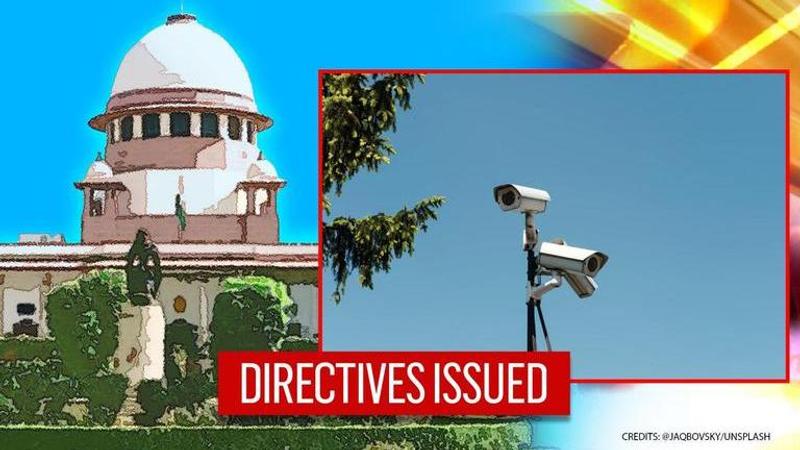Published 23:00 IST, December 2nd 2020
SC orders installation of CCTVs in police stations & offices of central probe agencies
In a landmark verdict on Wednesday, the Supreme Court ordered the installation of CCTV cameras in every police station and offices of all central probe agencies

In a landmark verdict on Wednesday, the Supreme Court ordered the installation of CCTV cameras in every police station and the offices of all central probe agencies such as CBI, ED, NIA, NCB, DRI and SFIO. A three-judge bench of Justices RF Nariman, KM Joseph and Aniruddha Bose was hearing a petition filed by Paramvir Singh Saini on the question of audio-video recordings and the installation of CCTV cameras in police stations. As per the court's directives, the camera footage has to be preserved for a period of 18 months.
In case of a human rights violation complaint, the CCTV footage can be summoned by the Human Rights Commission or the Human Rights Courts. The apex court directed the Principal Secretary of each state to file an affidavit detailing the action plan with exact timelines for compliance with this order within a period of 6 weeks. The matter has been listed for hearing on January 27, 2021.
Here are the key aspects of the order:
- 'No part of a police station should be left uncovered'
Paragraph 16: "It is imperative to ensure that CCTV cameras are installed at all entry and exit points, main gate of the police stations, all lock-ups, all corridors, the reception area, all verandas/outhouses, Inspector's room, Sub-Inspector's room, areas outside the lock-up room; station hall; in front of the police station compound; outside (not inside) washrooms/toilets; Duty Officer’s room; back part of the police station etc."
- Features of CCTV systems
Paragraph 17: "CCTV systems that have to be installed must be equipped with night vision and must necessarily consist of audio as well as video footage. In areas in which there is either no electricity and/or internet, it shall be the duty of the States/Union Territories to provide the same as expeditiously as possible using any mode of providing electricity, including solar/wind power."
- Setting up of Human Rights Courts
Paragraph 18: "Whenever there is information of force being used at police stations resulting in serious injury and/or custodial deaths, it is necessary that persons be free to complain for a redressal of the same. Such complaints may not only be made to the State Human Rights Commission, which is then to utilise its powers, more particularly under Sections 17 and 18 of the Protection of Human Rights Act, 1993, for redressal of such complaints, but also to Human Rights Courts, which must then be set up in each District of every State/Union Territory under Section 30 of the aforesaid Act."
Read: SC Rejects Vedanta’s Interim Plea To Inspect, Operate Closed Sterlite Copper Unit At Tuticorin
- Preservation of CCTV footage
Paragraph 20: "It shall be clearly mentioned therein that a person has a right to complain about human rights violations to the National/State Human Rights Commission, Human Rights Court or the Superintendent of Police or any other authority empowered to take cognizance of an offence. It shall further mention that CCTV footage is preserved for a certain minimum time period, which shall not be less than six months, and the victim has a right to have the same secured in the event of violation of his human rights."
Updated 23:00 IST, December 2nd 2020




